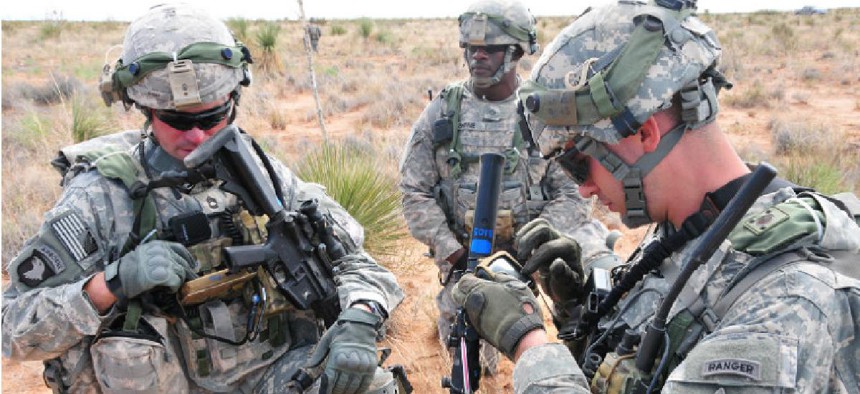Army enlists AI in search for better batteries


Connecting state and local government leaders
Researchers are looking for ways to make the batteries that power warfighters' equipment safer, lighter and less expensive.
As warfighters in the field depend more on their electronic gear, researchers are looking for ways to make the batteries that power such equipment safer, lighter and less expensive.
The Army Research Office is funding researchers at Cornell University who are using artificial intelligence to process various configurations of elements that would create alloys able to contribute to more efficient energy storage. They used multiple bots that each took on different aspects of the alloy identification problem, "from predicting the phase structures of various combinations to making sure those predictions obey the rules of thermodynamics," ARO officials said.
Using the system -- which was partly inspired by the IBM Watson supercomputer that called on a community of AI agents to answer questions on the Jeopardy! quiz show -- researchers were able to identify a unique catalyst that could be incorporated into more efficient fuel cells.
"Power is absolutely important in the Army. Soldiers walk from place to place carrying their gear. They have tons of equipment with them [and] tend to carry very expensive batteries. It can be a limiting factor," ARO Network Sciences Division Chief Purush Iyer said. "Portable, safe, fuel cells are definitely incredibly important," he said, adding that they have potential beyond defense, such as in electric cars.
"The problem is not solved yet; it's not settled. And people are working on it from multiple angles," Iyer said. Research is limited by how quickly experiments materialize and data is analyzed. Results culminate from betting on the right combinations of materials that yield the right properties, he said.
The hope is that extended-life battery tech would be employable in the next five to 10 years, Iyer said, but is hard to pinpoint a timeline for field delivery. But he drilled in on this point: the Defense Department and society writ large must manage expectations around artificial intelligence.
"Machine learning is not a silver bullet, Iyer said. "You have to apply it in a very, very refined way to get the kind of benefits that are necessary."
This article was first posted to FCW, a sibling site to GCN.
NEXT STORY: A 'living lab' for connected vehicles





